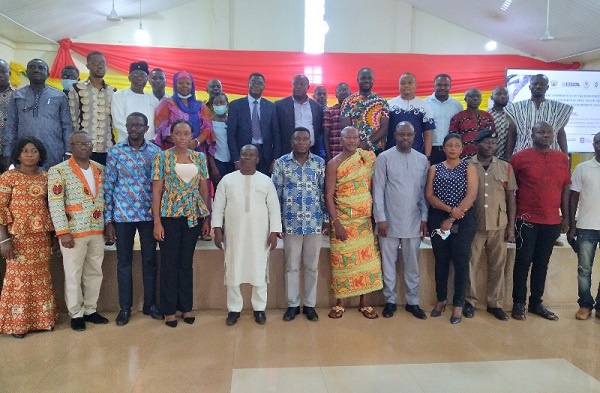
However, she said, the recent relatively weak performance of the non-traditional exports (NTEs) sector and other externalities in the international trading environment had revealed the risks, weaknesses and uncertainties associated with the over-dependence on primary commodity exports and limited product diversification.
She said government had, therefore, embarked on industrialisation agenda, which had brought about the establishment of many manufacturing companies under its flagship One-District-One-Factory programme.
Dr Asare was speaking at a conference on the implementation of the African Continental Free Trade Area (AfCFTA) Agreement and National Export Development Strategy (NEDS), jointly organised by the Ministry of Trade and Industry, the GEPA and the National AfCFTA Secretariat at Goaso in the Ahafo Region.
The conference was on the theme: “Empowering Ghanaian Businesses to Harness the Benefits of the AfCFTA Agreement under the Framework of the NEDS,” and sponsored by the Stanbic Bank, Ghana.
It brought together about 160 stakeholders from the public and private sectors to discuss government’s export development interventions in empowering the private sector to harness the benefits of AfCFTA.
The conference again focused on preparations for the start of trading, including the National Action Plan for Boosting Intra-African Trade, which are necessary for export competitiveness.
It was also to empower businesses in Ghana to become active and effective beneficiaries of the projected expansion of intra-African trade.
Participants were taken through the NEDS as a framework for revitalising the nation’s export development efforts with a strong focus on the African continental market strategy hinged on the government’s industrial transformation agenda to promote an export-led economy and prosperity.
Dr Asare said GEPA was poised to continue to perform its expected coordinating role in the development and facilitation of exports in general for the effective and successful implementation of NEDS.
She expressed the hope that each district in Ghana would develop at least one exportable product to provide the needed raw materials to feed the ever-expanding numbers of factories established under 1D1F.
Dr Asare said the doors of GEPA were always opened for businesses and potential exporters in the Region to offer the necessary trade and assistance.
She, therefore, entreated the participants to continuously contact the offices of GEPA not only to facilitate export operations but to also take advantage of the immense export potentials of the Region. Read Full Story






















Facebook
Twitter
Pinterest
Instagram
Google+
YouTube
LinkedIn
RSS